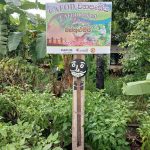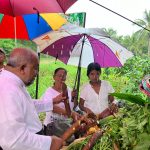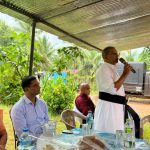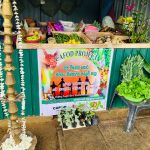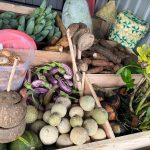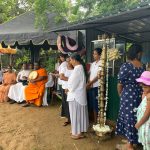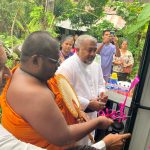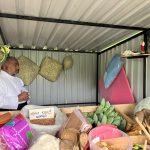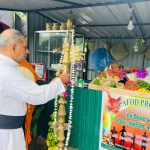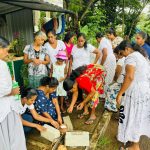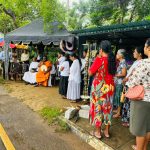On the 14th of October 2024, the Caritas Chilaw Diocesan Centre, under the CAFOD project, organized a community market opening ceremony to empower local beneficiaries. The event occurred at two locations, Baththulu Oya and Akkarapaha, gathering diverse participants. Beneficiaries, stakeholders, Caritas staff, and community leaders from various backgrounds came together, including representatives from the Sinhala and Muslim communities. The involvement of religious leaders in the respective locations and the National Director of Caritas Sri Lanka Rev. Fr. Luke Nelson and the Director of Caritas Chilaw Rev. Fr. Dilan Marians highlighted the importance of this initiative for the local community.
The main goal of the community market was to provide a platform where beneficiaries could sell their goods, particularly homegrown products from their gardens, creating sustainable income opportunities. By pooling resources and sharing responsibilities, the market aimed to promote cooperation among the participants, ensuring that the project would generate long-term benefits for the community. Women were crucial in organizing and running the market, demonstrating remarkable leadership and collaboration alongside a few men. The event created a strong sense of community spirit, bringing together individuals from diverse cultural backgrounds to work towards a common goal.
It was visible that the beneficiaries successfully sold their products and helped to improve their livelihoods. The market featured a variety of items, including fruits, vegetables, and handmade goods. By providing a space for these transactions, the community market helped boost local income and provided a sustainable solution for economic growth within the region. This concept of a community market will continue to open every day, offering further opportunities for the community to engage in productive activities and build stronger economic ties.
This initiative, supported by Caritas Sri Lanka – SEDEC, not only aimed at economic development but also encouraged a sense of unity and collaboration among the participants. It serves as a promising step towards creating self-sufficient communities that can thrive by working together and supporting one another in their economic ventures.


